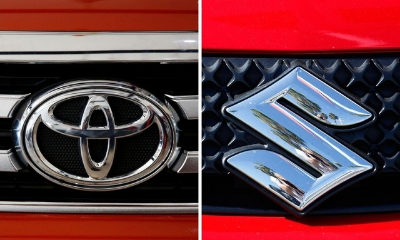 My wife and I earn Rs.6.5 lakh annually. We save Rs.15,000 per month. We want to buy a car worth Rs.6 lakh after over a year. We want to raise Rs.3.5 lakh through investments and the rest via car loan. Should we invest for a longer period?
My wife and I earn Rs.6.5 lakh annually. We save Rs.15,000 per month. We want to buy a car worth Rs.6 lakh after over a year. We want to raise Rs.3.5 lakh through investments and the rest via car loan. Should we invest for a longer period?
—Jitendra Bhushan
Yes, you should try to save for a few more years before you go ahead to buy the car. It is better that you buy the car with self-raised funds instead of borrowed capital, which is an option when your employer has a company car lease policy or if you are self-employed as in both cases it becomes a case of better tax planning.
In your case, the car’s value is almost equal to your annual salary. On top of it, if you take a loan, the actual cost becomes quite high. And this is for an asset class which is depreciating in nature.
In case of a house, it is a little different and it is recommended to take a loan due to its capital value and because it’s an appreciating asset; tax advantage is additional.
Your savings of Rs.15,000 per month, if done for 3 years, can give a capital value of Rs.5.40 lakh and with an average earning rate of 10% you can accumulate a corpus of Rs.6.3 lakh. You can reduce the period by saving a little more aggressively and increasing the savings every year. You can consider a systematic investment plan in equity hybrid funds.
I invest Rs.4,000 per month in a small-cap fund through SIP. I want to start another SIP of Rs.3,000. Should I invest in a high-risk or low-risk fund?
—Rocky Sharma
The portfolio allocation needs to be diversified and you can’t invest only in one asset class. Investment in a risky asset class i.e. equity and that too a small-cap fund, which is riskier within the equity asset class, should only be a part of your portfolio and not the complete portfolio. Within equity, create a mix of large-cap, multi-cap and mid-cap. Also, when investing in equity, make sure the investment horizon is more than 5 years.
Also consider the debt asset class as it gives protection from volatility. Investments can be done based on short- and long-term goals. For short-term, ultra short-term debt funds are a good option. For long-term debt investment, Public Provident Fund and bank fixed deposits (subject to taxation) can be bought.
Surya Bhatia is managing partner of Asset Managers.
The development was reported by livemint.com






